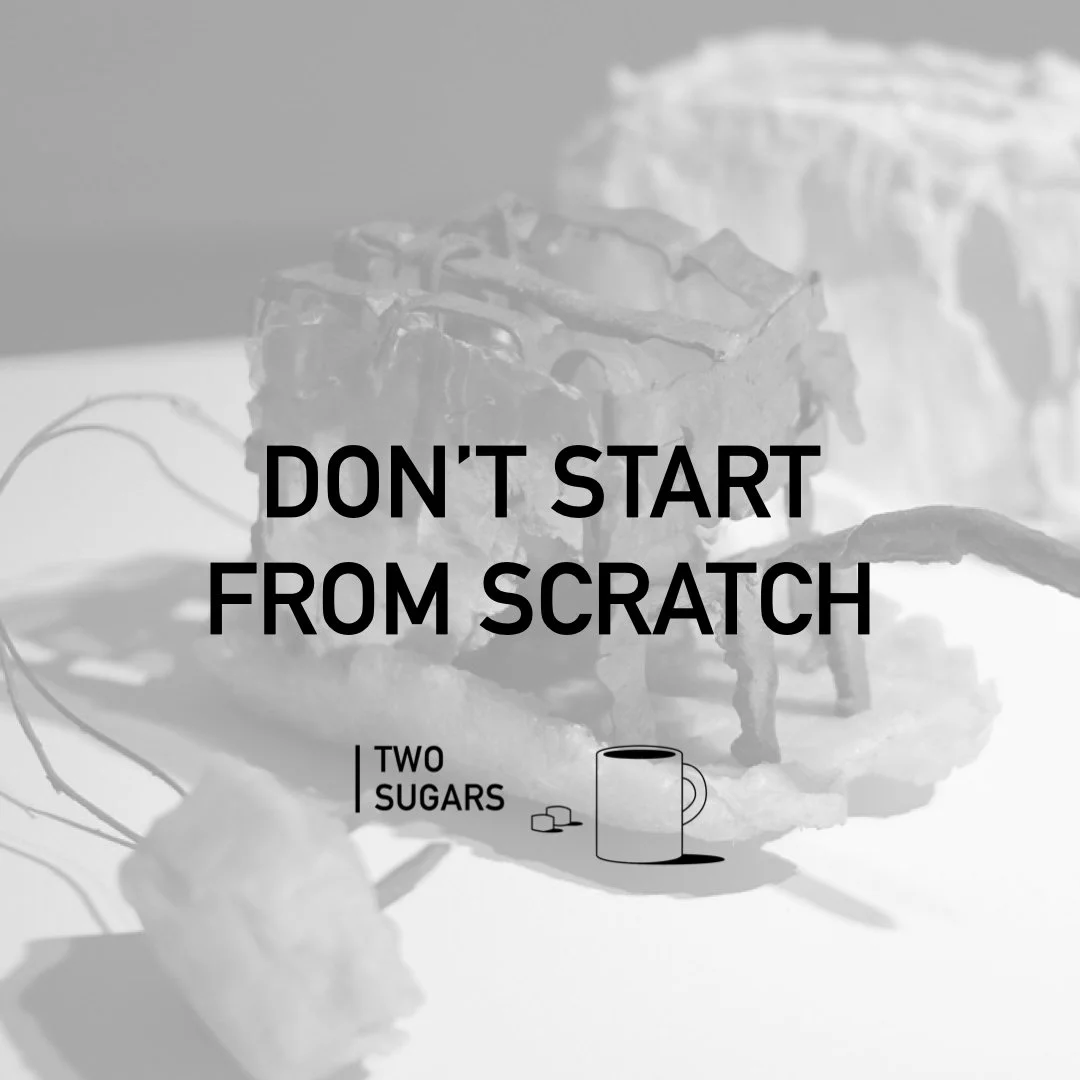DON’t START FROM SCRATCH
There is a moment in the fifth Hitchhiker Guide to the Galaxy book
Where the hero Arthur Dent finds himself on a technologically primitive planet in a faraway galaxy
He is from a planet of cars and fine wines
So he expects to soon be able to rustle some of these things up
And become the technological god of his new planet
But he soon realises that left to his own devices
Not only would he have no chance making a toaster
He could only just about make a sandwich
Reading this passage gave designer Thomas Thwaites an idea
Left to his own devices could he build a toaster?
So he bought the cheapest toaster he could find
Took it home and dismantled it into its individual parts
Of which there were 400
Made of five different materials
Steel, mica, plastic, copper and nickel
His first job was getting some steel
So he went to a mine and got himself some iron ore
Then he headed to Scotland to chip some mica off the side of a mountain
After BP refused to let him visit an oil rig, he melted down some old plastics
What he found continually throughout his process
Was that the more fundamental his need
The greater his reliance on someone else
After a full 9 months of toaster building
He switched his machine on
It heated up for a full four seconds
Before melting
Thomas Thwaites’ Toaster Project is an incredible design feat
And a fascinating demonstration of the complexity of everyday objects
It also says how much harder things are when you start from scratch
Which is definitely true in advertising
For an industry rich in success stories and lessons
We’re not very good at building on what’s gone before
Every brief starts from scratch
Or like the problem is brand new
But most have been tackled before
In some way, shape or form
We are often guilty of thinking that because technologies, products and channels have evolved
So too must the answer
But if you read the CIAs list of problem-solving questions
The first is, has anyone else ever tried to solve this problem or a similar one before?
If it’s good enough for the CIA it’s probably good enough for us
There’s no need to always start from scratch

